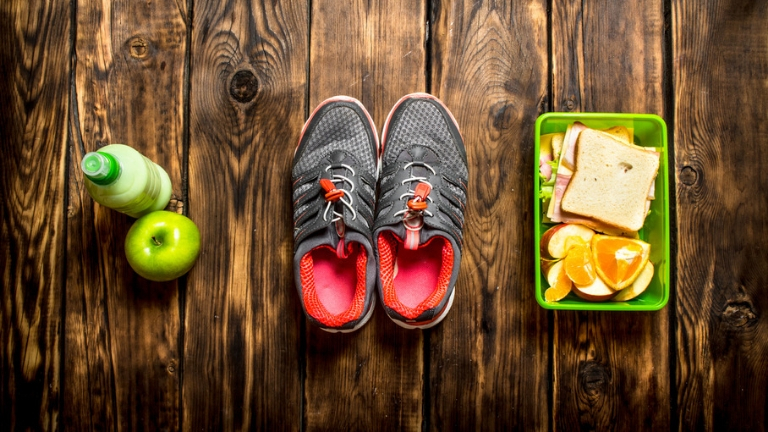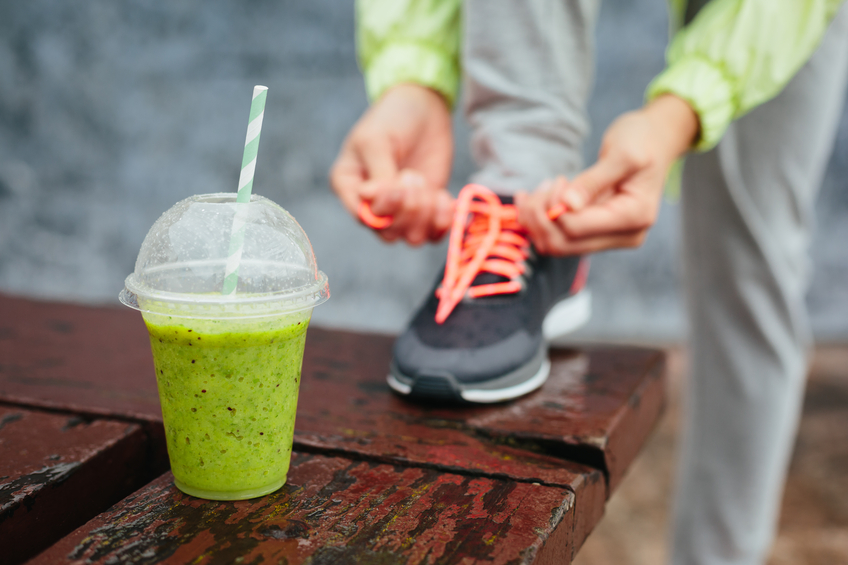A runner’s diet needs the best nutrition for endurance and recovery. Top sport nutritionist Renee McGregor explains how to work the food groups to improve your running performance
Are you a regular attendee at Saturday morning park runs? Do you enjoy a social run with your friends after the school drop off? Do you run a few miles a week to see what all the health-fuss is about? Are you trying to beat your friends at a best 5k time?
Whatever your running motivation is, training and consistency is going to be the key to your success.
However, although training consistently may take you a certain distance, if you really want to reap the rewards running brings, you may also want to take a look at the nutrition you choose to fuel and recover from your run.
you need to be eating enough to fuel your runs
If you aren’t fueling your runs with good quality food and nutrients, you’ll start to feel fatigued and struggle to carry on with your training.
Especially for beginners, running can be exhausting right? It tends to get easier with practice but it can be hard to keep your energy levels up when you’re still so new to it all.
When it comes to running, you need to be eating enough to fuel your runs and complete those tough sessions, but also develop your strength and recover properly.
Oh and if you are running in a bid to lose some weight, nutrition is still key. I’ve seen far too many individuals drastically cut back on their food intake – essentially setting themselves up to fail.
By drastically cutting your calories in order to achieve the weight loss you hope for, you’ll instead notice that you are feeling low in energy and unable to train. It can also result in a loss of not just body fat but muscle mass too which is a big no-no.
When losing weight, you want to retain your muscle mass as much as possible, which will not be possible if you are restricting your food or trying fad diets.
cutting back too drastically on energy intake leaves the body feeling severely depleted
That’s because the higher the muscle mass within your body, the more metabolically active you are – so, the more calories you will be able to burn per minute even at rest.
The human body will always aim to achieve energy balance even if it’s not the weight you want to be.
Thus cutting back too drastically on energy intake leaves the body feeling severely depleted, and means you are more likely to fall off the wagon as it is not sustainable for the body to work effectively or efficiently on a very low energy (calorie) intake.
The key will be to look at your training week and then tailor your food choices around it. Contrary to popular belief, this does not mean filling up on plates of carbs before every run.
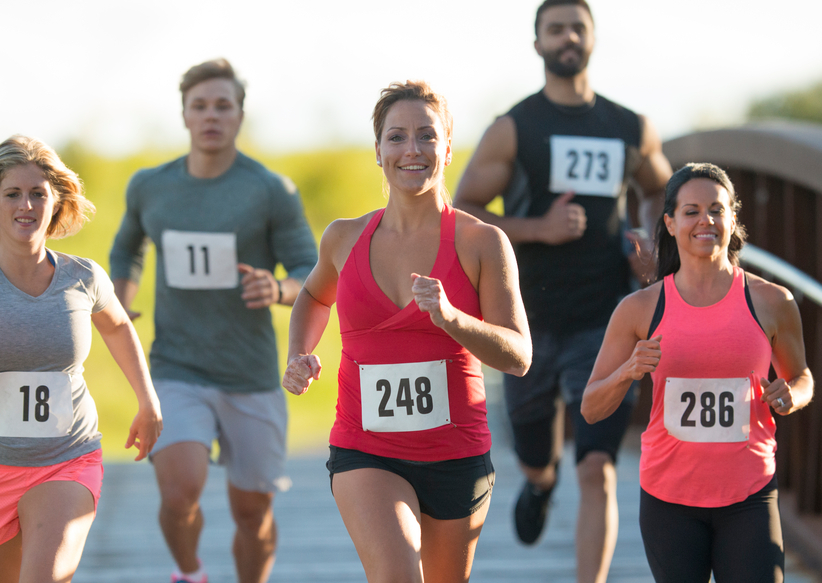
8 nutrition tips for runners
#1 Be realistic about the energy burn
While hugely beneficial in increasing your overall energy expenditure, if you are only running for around 30 to 40 minutes a few times a week at a slow or moderate intensity, it doesn’t give you the green light to go ahead and indulge in that huge piece of cake mid-afternoon.
Contrary to what you may think, a run of this level will probably burn around 200 to 300 calories based on your weight. So if your primary goal is weight loss, you will negate the whole process if on every run day you then proceed to ‘treat’ yourself.
That said having the occasional piece of cake is also not going to sabotage – just be mindful about how often ‘occasional’ is.
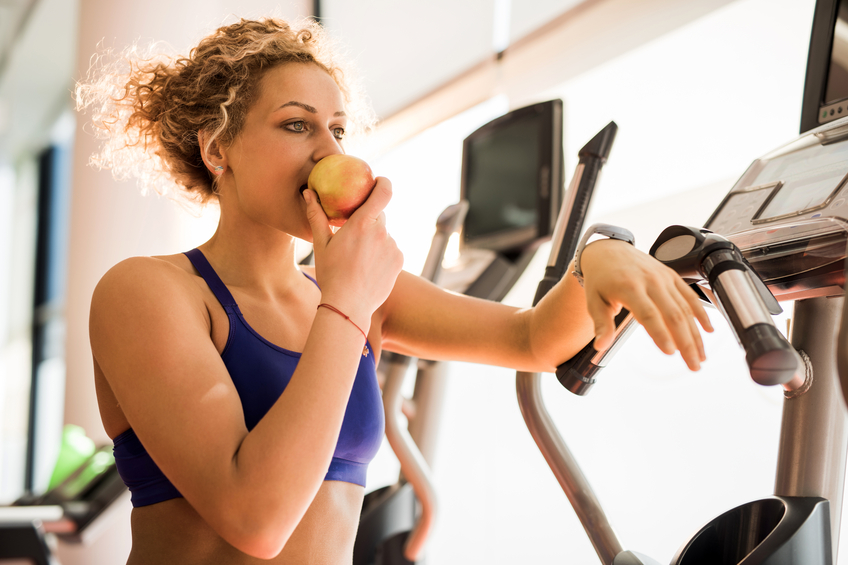
#2 Be careful with recovery calories
We’ve all been told about the 30-minute recovery window, whereby you have to get nutrients (usually protein and carbs) into your body so that your depleted muscles are topped up with glycogen and protein.
While it’s important to get nutrients into your body after training, the 30-minute rule only becomes relevant if firstly, you are running at a high intensity and your next meal is over two hours after finishing, or you are someone who is planning a further run within 12 hours.
They are eating additional ‘recovery’ calories (as well as a meal that would suffice)
This means then that for the majority of us who are only training once a day, our next meal (whenever that may be) is usually sufficient enough for recovery.
This is often one of the main reasons I find individuals who are running to lose weight, don’t. They are eating additional ‘recovery’ calories (as well as a meal that would suffice), which they do not need to.
#3 Periodising carbohydrates
In order to really benefit from your training plan, it is important that you plan ahead so you know what to eat and when.
Indeed, nutrient dense carbs such as oats, whole grains, and sweet potatos are very useful for fueling up before high intensity sessions which would include hill repeats, intervals, or long endurance runs over 90 minutes long.
If you’re planning a morning run, it’s probably a good idea to include lots of slower releasing carbs into your dinner the night before, so you can tap into your carbohydrate store the next morning. You can consume your complex carbs anytime up to two hours before the training.
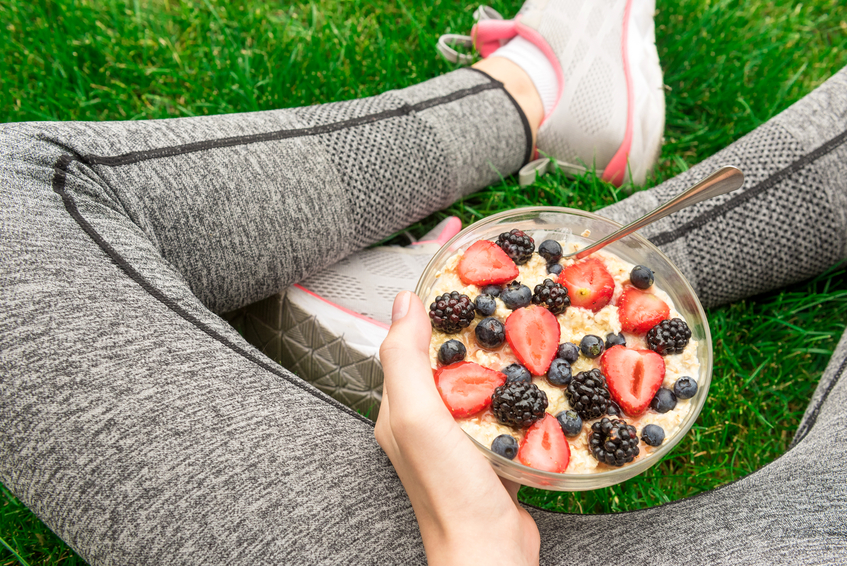
#4 Carbs – how much is enough?
Don’t just think about your nutrition in the meal or snack immediately before your run; if this is going to be a high intensity session, you actually need to think about getting a regular intake of carbohydrates at all meals and snacks during the 24 hours prior to you session.
This will ensure that you have sufficient glycogen stores to maintain a consistent pace throughout your session.
For high intensity training, aim for around a fist size portion of carbohydrates at your meals and a further half fist portion of carbohydrates at one to two snacks prior to training.
For high intensity training, aim for around a fist size portion of carbohydrates at your meals
Good suggestions include two oatcakes with peanut butter, banana with five brazil nuts, or a small cereal bar.
For lower intensity training, aim for a fist size portion of carbohydrates at your meals but stick to protein based snacks one to two times a day as required.
Good suggestions include 15g of beef jerky, 100g edamame beans, or 100g cottage cheese with crudités.
#5 Don’t ditch the dairy
With so many food bloggers bugging up dairy free milk alternatives such as almond, coconut and hemp, it is important to know that cows milk is actually one of the best recovery options you can choose post training.
Not only does it have the right proportions of carbohydrate to protein to encourage muscle recovery, it also has the best composition with easily digestible carbohydrates and protein, making uptake by the muscle more efficient.
In comparison, if you look at shop bought almond milk as an example, it is just expensive water.
Dairy foods also contain calcium and this has been demonstrated to have beneficial effects on body composition, helping you to maintain a higher percentage of lean muscle mass.
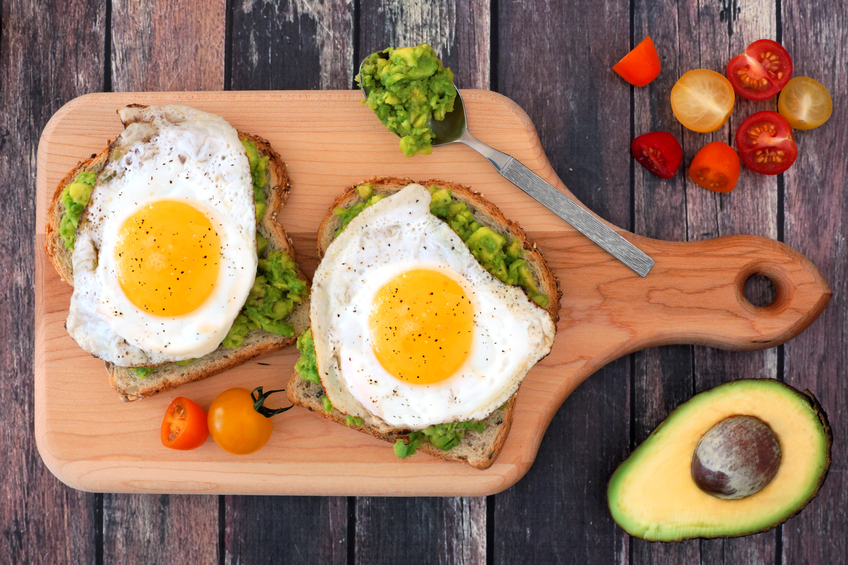
#6 Protein Power
Many individuals see protein foods as the most important component of recovery. This is not strictly true, and once again depends on the type of training you have completed.
For those of you who are regularly doing high intensity running, such as intervals or tempo runs, then actually replenishing your body with carbohydrates after is equally as important as protein.
Again, this is where milk is such a great option as it is the perfect composition of carbohydrate, protein, fluid and electrolytes for recovery.
Try eggs for breakfast, chicken at lunch, and fish for dinner
However for those of you who are trying to drop a few pounds through your running, then consuming protein regularly through the day at meals and snack time is a great way of maintaining lean muscle mass while you are restricting your energy intake.
Additionally protein helps to keep you full and so this can prevent the need to dip into the biscuit tin mid-afternoon.
Try including eggs at breakfast, chicken or houmous for lunch, snack on Greek yogurt and fruit mid afternoon, and fish or tofu for dinner.
#7 Don’t forget about your vitamins and minerals
We all know that fruits and vegetables are good for us – they provide us with essential vitamins, minerals, anti-oxidants and fibre. They are also low in energy and can help keep us full.
Root vegetables such as carrots, swedes, butternut squash are all great choices on low carbohydrate days as they help us to stop feeling deprived if we can’t serve our chicken breast with a great big jacket potato.
Herbs and spices are also very potent in anti-oxidants which are essential for numerous processes within the body, including preventing oxidative damage to the muscle – a perfect excuse to cook a vegetable curry full of vibrant colours and spices.
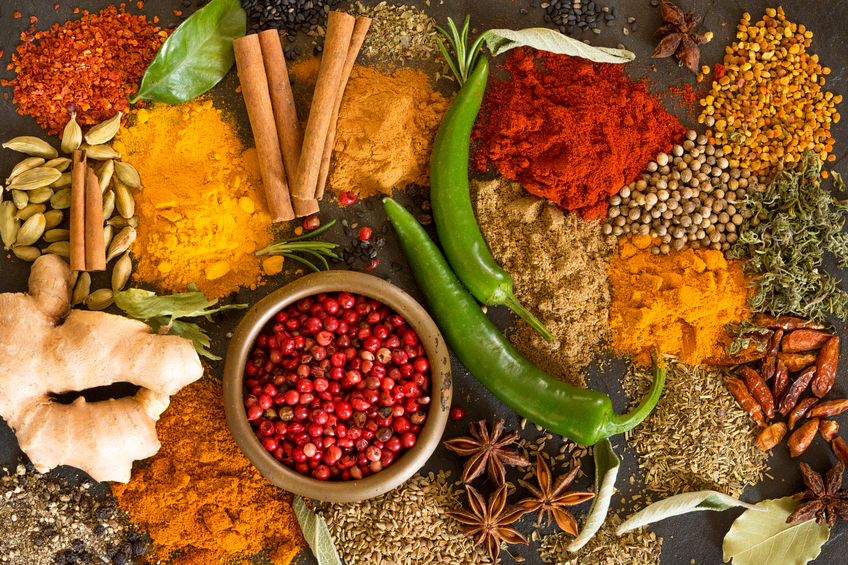
#8 For serious runners – perfect your race day nutrition
Those who may be considering stepping things up by taking part in a half marathon or racing cross country, it is important to get your race day nutrition perfected.
When it comes to race day, remember to ensure that you make choices for breakfast and other meals that have been tried and tested.
I always encourage individuals to simulate race day so that they can go into it knowing that they have ‘controlled all the controllable’.
Some of my favourite race day breakfasts include:
A toasted bagel topped with nut butter and banana: this provides you with around 85g of carbohydrates so is a great top up on race day morning.
Or if porridge is your preferred choice, why not try this topped with toasted walnuts and honey.
For longer distance races and if I have time, I would encourage something like a toasted bagel with scrambled eggs.
 Renee McGregor is one of the UK’s top sports nutritionists, advising athletes from amateur to Olympic levels.
Renee McGregor is one of the UK’s top sports nutritionists, advising athletes from amateur to Olympic levels.
She is a performance and clinical Dietitian/Nutritionist, accredited by the likes of Health and Care Professions Council, and is a member of The British Dietetic Association.
With years of experience and expertise in sports nutrition, she offers vital and unequalled insight into what you need to fuel your success in your given sport.
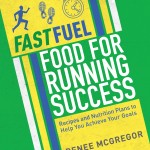
Renee also works as a specialist in the clinical field of eating disorders, and holds the position of Nutrition Lead at the charity Anorexia & Bulimia Care.
For more information and recipe ideas, take a look at Renee McGregor’s latest book, Fast Fuel: Food for Running Success, available to buy on Amazon in the US and in the UK.
Relevant Healthista Content:
Training for a marathon? 5 healthy recipes to fuel your running
How to run – a guide for people who hate running
Running for beginners – 7 steps to getting started
Healthista Content you may also like:
5 natural ways to boost your immune system
60 weight loss tips in 60 days
10 natural libido boosters recommended by nutritionists
3 things this TV doctor wants you to know about mood
Like this article? Sign up to our newsletter to get more articles like this delivered straight to your inbox.



